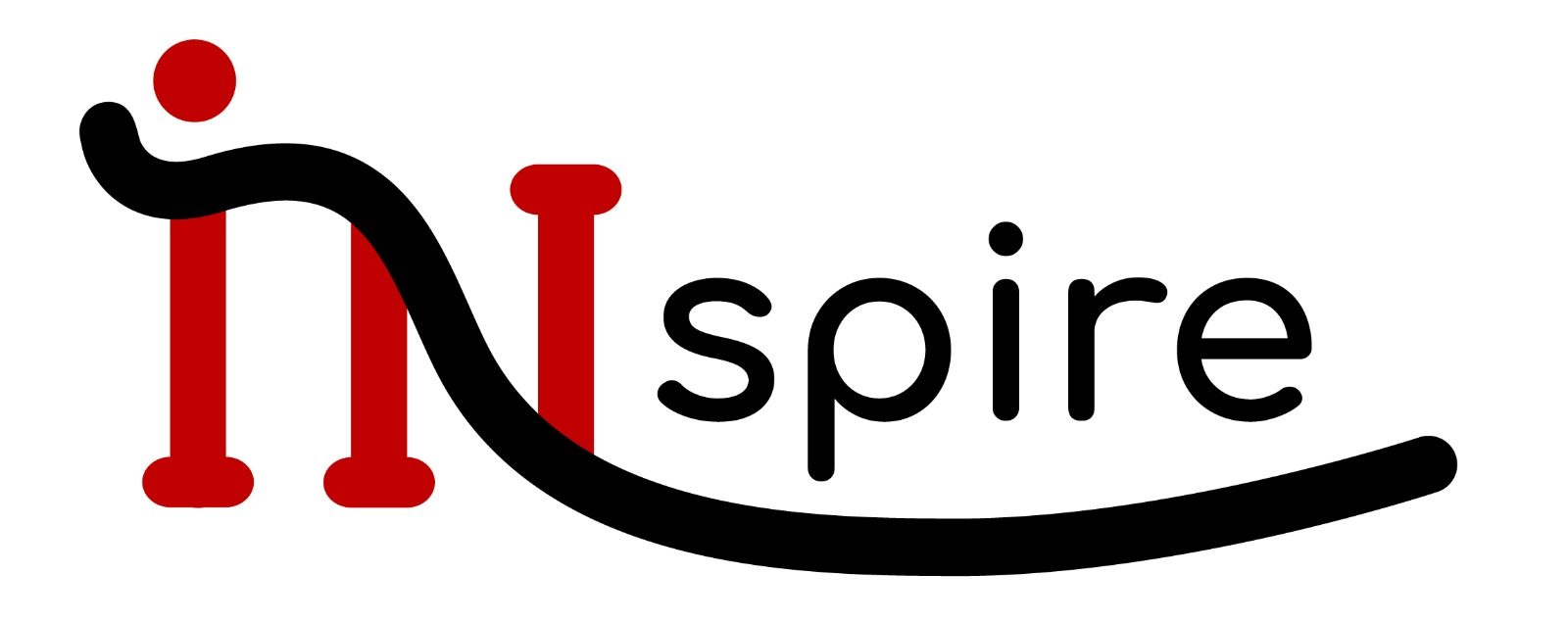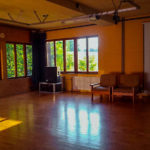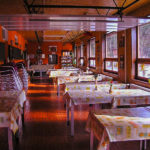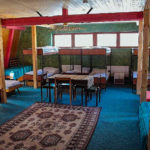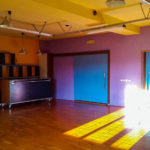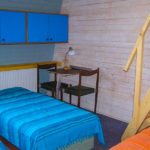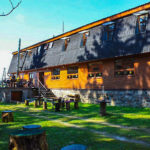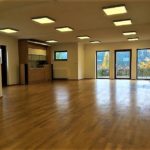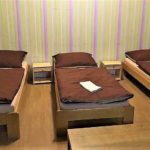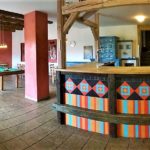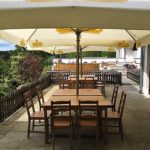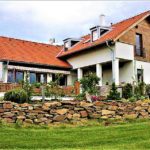Transformation
Two-training courses programme on Media Literacy
Discover how you are influenced by media.
Learn how to challenge it.
Share it with others.
Transformation
Two-training courses programme on media literacy
Phase 1: 12.– 17. 03. 2022 (excluding travel days)
Chata Doubravka, Chotěboř, Czech Republic
Phase 2: 26. 6.–1. 7. 2022 (excluding travel days)
on Statek Habří, Habří, Czech Republic
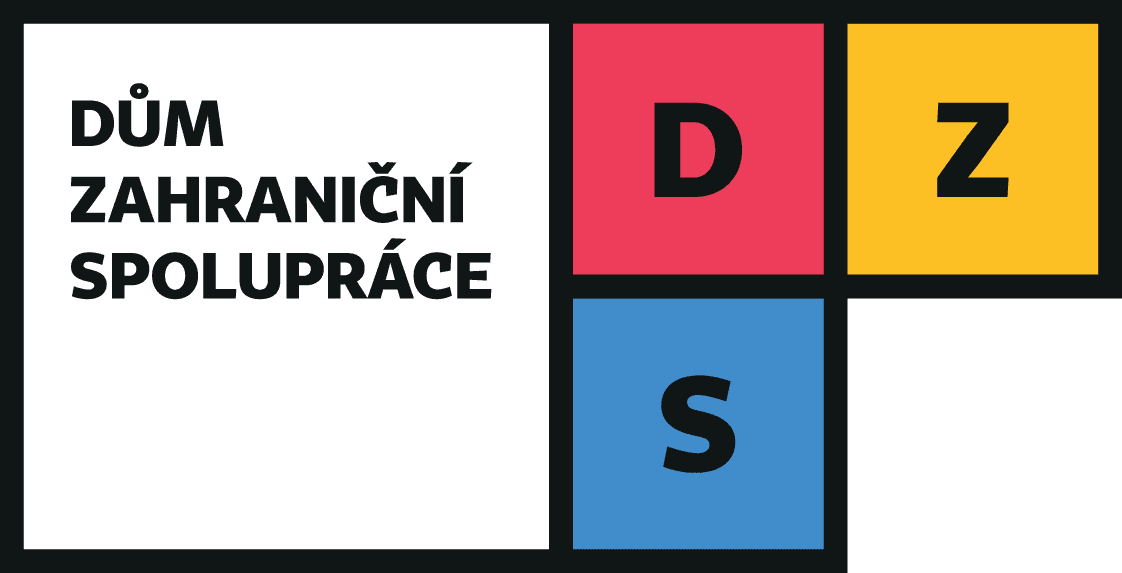


We are living in a democratic society and have the opportunity to influence the politics of our country. Yet, we are also living in a so-called ‘Information society’ – who holds information, holds power, and it might be in their interest to manipulate information and its distribution to their advantage. It is crucial to learn how to think critically, recognizing both the fake news and the ways in which media influences our minds.
Transformation is a Two-training courses programme for youth workers, educators, trainers, activists, volunteers or facilitators working directly with young people. The aim of the programme is to provide youth workers with skills in media literacy and creative methods to challenge toxic narratives in our communities.
- During the 1st training course (12.–17. 03. 2022), we will discover how toxic messages (prejudices, stereotypes, hate speech) are embedded in our heads and will identify the narratives’ build-up process.
- From April to June 2022, we will carry out a research phase among our target groups, identifying and mapping what toxic messages are anchored in our local communities.
- And in the 2nd training course (26. 6.–1. 7. 2022), we will learn creative methods for transforming toxic messages and will create counter-massages to tackle the toxic narratives present in our communities.
- Youth workers, educators, trainers, activists, volunteers or facilitators cooperating with participating organisations.
- Participants committed to taking part in the full programme: Training Course 1, implementation of the research phase in the local communities, and Training Course 2.
- Residents of the following countries: Czech Republic, Greece, Latvia, Croatia, Spain, Italy, Portugal, Poland, and North Macedonia.
- Participants 18+ years old.
- Working with young people on a regular basis.
- Interested in developing their critical thinking.
- Looking to develop their knowledge about media (how do media agents work, on what principles…), and narratives (what is it, why is it so powerful, how does it influences people on an everyday basis, how to counter toxic narratives)
We have space for 28 participants who are committed to participating in the full programme.
- Full participation in the whole programme (including TC 1, research phase in the local communities, and TC 2).
- Contribution of €50 per TC as a participation fee (if this should be an obstacle for you, contact your partner organisation in order to receive support from them)
Dissemination activities
- In between the two training courses, you will run a research phase among the youth you are working with (the whole process will be explained during the TC 1).
- During the TC 2, we will co-create a book with toxic narratives in society and counter-narratives that we designed to challenge them.
- After the TC 2, you are committed to organising a storytelling performance (with the support of the partner organisation) to share empowering messages with your community.
- Start with filling the application form.
- Every partner organisation (see below) will select 2-3 youth workers to take part in the programme.
- If you are selected, you will receive a Confirmation Letter with more information regarding your participation. ONLY then you can start managing your travel arrangements and booking your tickets!
- If you have any questions, please contact Project Supervisor.
Learning Process & Programme
FORMATION
- boost your critical thinking -
- identify toxic narratives -
- learn how to do Participatory research -
- discover different teaching methods for media literacy -
- practice Storytelling and Social theatre techniques -
Day 1: In this day we will have the presentation of the project and of the activity 1, will discuss our learning pathway and will set our individual learning goals. We will also have an introduction to the concept of Media Literacy and will define the two types of media that we will address in the project: Public Media and Social Media, focusing on the differences and similarities that both have when addressed in youth work.
Day 2: In day two, we will explore the concept of Narrative and how hegemonic narratives are formed and transmitted through media. We will also discuss the formation of harmful and toxic narratives and will start identifying which ones are embedded in our local communities. We will further engage with the topic, defining Hate Speech and Fake News and working in cross-national groups to identify common threads in our local realities.
Day 3: We will start brainstorming about potential strategies to challenge Hate Speech and Toxic Narratives in our local communities, engaging with the concept of ‘Counter-Narratives’. After learning the different factors involved in the formation of Counter-Narratives, we will experience different practical, hands-on exercises and dynamics to build them up, as a way of resisting Hate Speech and Fake News.
Day 4: In this day we will discover how we can carry out participatory research with young people and how this research can be used for designing activities and projects that tackle hegemonic narratives in our local communities. We will practice the learned methods and will design a research strategy for the dissemination phase of the project.
Day 5: Heading towards the end of the programme, we will receive an introduction to Non-Violent communication and will practice Newspaper Theatre, a form of Augusto Boal’s Theatre of the Oppressed that can foster media critical thinking for young people.
Day 6: In the final day of the programme, we will create an action plan for the dissemination phase that we will have in-between activities. We will have a reflection and celebration about the first phase of our programme and will have our closing of the activity one.
TRANS-NATION
- understand the elements of Newspaper theatre -
- facilitate other social theatre methods for teaching media literacy -
- create a campaign with empowering narratives -
Day 1: In the first day of our Activity 2, we will have the opportunity to reconnect and re-encounter with the group. We will have the space to share our experiences during the participatory research phase and the dissemination after the first activity, and will start creating the set of ‘Counter-Narratives’ that we would like to spread in our local communities, compiling them in our Transformation Book.
Day 2: In the second day, we will explore the concept of Campaign and how we can develop and implement campaigning activities in our local communities. We will debate on how we can campaign in Public Media and will brainstorm and practice different forms of offline activism. Finally, we will get an introduction of Storytelling Workshops and Events as Media Literacy tools.
Day 3: Here we will discover the potential of different forms of Social Theatre as Media Literacy tools when working with young people, and we will practice different theatrical and storytelling forms that can be applied in youth work in our local communities
Day 4: On day 4 we will engage with the potential of Social Media campaigns and Online activism, and will explore how we can create Digital Performances to challenge the hegemonic and toxic narratives present in our local communities.
Day 5: In this day we will have the opportunity to develop our skills in designing and implementing a campaign. Drawing on the concepts and resources gathered during the previous sessions of the programme, we will design the campaigns that we will put into practice in our local organisations and will have the opportunity to exchange our ideas with all the participants from the partner organisations.
Day 6: As the last day of the programme, we will start designing our second dissemination plan and how we will spread the word and the work that we have been doing. We will also introduce our Forum of Storytellers initiative, a tool for developing a European network of collaboration and innovation in the use of Media Literacy tools with young people. Finally, we will have the opportunity create future projects in collaboration and to trace our next steps, closing the second activity of our project.
Covid & Safety Measures
If there is a need for a PCR or antigen test upon travelling, please contact the project supervisor to discuss the amount of the reimbursement
Before entering the venue, all participants need to take an antigen test to be sure the project is Covid-free.
In case of developing Covid-19 symptoms, you will be accommodated in isolation inside the venue. Czech Inspire will cover the expenses for your accommodation during the quarantine. You might need to pay for your food if the time of quarantine exceeds the time of the Training Course
- We will follow any regulation according to the current law and Czech authorities’ restrictions.
- We will avoid contact with people from outside the programme.
Accommodation – Chata Doubravka
The venue is a modern resort located in semi-isolation and surrounded by the beautiful Iron Mountains. It is by the rocky canyon of the river Doubrava, in a nature reserve.
Each room will be for 4 people. The rooms are equipped with bedsheets.
- There will be 3 meals a day + 2 coffee breaks, with mainly traditional Czech cuisine. The food provided during the programme will be an environmentally-conscious vegetarian diet.
If you are having a special diet or allergies, please let us know in the application form, so we can arrange your needs in time.
- There is a buffet in the venue, where you can buy soft drinks and sweets with cash (Czech crowns).
The nearest shop is 5 km by walk in Chotěboř, but we offer soft drinks and snacks at the buffet.
Accommodation – Statek Habří
The venue is a pension in Vysočina region. Forest is nearby, there is a pool, stand-alone training room and other cool things.
Rooms will be from 4 to 8 people. The rooms are equipped with bedsheets.
Website (in Czech)
- There will be 3 meals a day + 2 coffee breaks, with mainly traditional Czech cuisine. The food provided during the programme will be an environmentally-conscious vegetarian diet.
If you are having a special diet or allergies, please let us know in the application form, so we can arrange your needs in time.
Travel Reimbursement
The project is co-financed by the Erasmus+ programme.
The costs of the programme, including meals, accommodation, and travel costs (according to the maximum amount of money allowed per country) will be covered by the Erasmus+ programme. Please contact your sending organisation to learn more about the financial details, and how to arrange the booking of your travel tickets.
Very important!
The travel expenses will be reimbursed on the basis of tickets, bookings and invoices, so remember to keep them all with you!
Erasmus+ calculated maximum amount of travel reimbursement you can receive based on the distance band.
If there is written GT (Green Travel), it means participants cannot travel by plane.
€360 Portugal
€320 Latvia (GT)
€275 Greece, Italy (send by Associazione Altradimora), Spain, The Republic of North Macedonia
€210 Croatia (GT), Italy (send by Associazione Slow Tourism Alto Adige) (GT), Poland (GT)
€20 Czech Republic
There is a €50 participation fee, to be paid in cash upon arrival to every TC. We perceive this fee as proof of your motivation and commitment to take part in the programme. This will be used for financing the local dissemination activities after the training.
If it is an obstacle for you, please contact your partner organisation or Project Supervisor, and they will support you by discussing alternatives.
Partner organisations

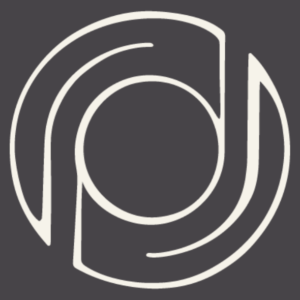

The Network of youth engagement – Katerini
Greece


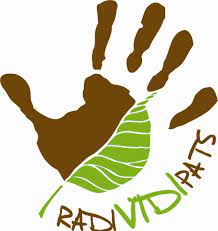
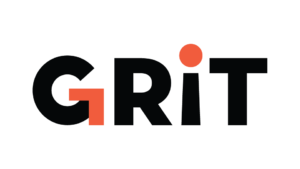
Innovator Foundation
Poland
kontakt@fundacjainnowator.pl
www.fundacjainnowator.pl/en

Project's Team
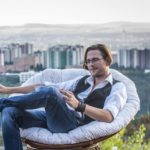
Vojtěch Žák
Junior trainer & Project supervisor
I am a trainer, facilitator, coach, storyteller, and writer.
I hold a Master degree from Media studies and journalism at Masaryk University, and years of experiences as a journalist in daily press, radio, and different magazines, but also as a marketing specialist, copywriter, blogger, content maker, scriptwriter, graphic designer, and writer. For two years, I had cooperated with the Career Service of Masaryk University.
I have worked for 6 years as a scout leader, after that he took a break from being a youth worker for a few years and returned to it after participating in EVS program in Olde Vechte Foundation in the Netherlands. I had become a coach, facilitator, and trainer with a focus on personal development, storytelling, and usage of games for education.
The main topics I am focused on are labor market, social inclusion (mainly of the LGBT+ spectrum), and personal development. The main methods I am using are storytelling, coaching, systemic work, body movement, art, gamification, and LARP.
czechinspire@gmail.com
00420 775 636 658
Facebook
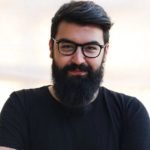
Gabriel Vivas-Martínez
Main Trainer
I am an actor, freelancer trainer and PhD researcher at The Royal Central School of Speech and Drama – University of London. As a practitioner and activist, I am interested in how socially-engaged theatre making can advance the potential for social transformation. I use Theatre-Voice-Body Expression methods for working with young people directly, including young people with disabilities, young migrants and refugees, Roma community, and LGBTIQ+ young people.
I hold a BA (Hons) with distinction in Dramatic Art from the Superior Dramatic Art School of Castilla & León (Spain) and an MA in Artistic, Literary and Cultural Studies from the Autonomous University of Madrid. I practice different forms of Social Theatre (including Theatre of the Oppressed, Community theatre and Site-Specific performance) for promoting visibility and action over pressing social issues, including violence, discrimination and hate speech. I believe that doing theatre with young people can be a powerful way to develop self-awareness and a sense of connection and belonging, and a starting point for transforming toxic hegemonic narratives and mainstream discourses about minorities.
